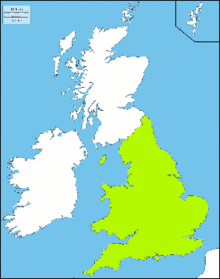Brytho-Hellenic: Difference between revisions
m Llyn moved page Elynig to Brytho-Hellenic: Maybe the English name is more evocative and simple than the native one. |
No edit summary |
||
| Line 19: | Line 19: | ||
|script = [[w:Latin script|Latin script]] | |script = [[w:Latin script|Latin script]] | ||
}} | }} | ||
= General infos = | |||
'''Brytho-Hellenic''' or simply '''Neohellenic''' (the native name is ''Elynig'') is a language that is spoken nowadays in a different timeline in a country that corresponds almost exactly to our England. | |||
In that timeline the Persians have won the wars against Greece and the Greeks have been forced to emigrate and to flee. Firstly the Greeks find protection in Magna Graecia, but, as the Persians conquer those territories, they shift to Northern Italy, where the Romans withstand the Persian troops. In 389 b.C. Rome is destroyed and both Romans and Greeks flee to Carthage, enemy of the Persian empire. Together they try to attack the Persian fleet, but they are defeated again. | |||
In the last days of 382 b.C. an imposing expedition sails away from a harbour on the coast of New Carthage - our Cartagena in Spain. Its mission is to find new territories where they can live in peace and prosperity, far from the Persian threat. | |||
In 381 b.C. Conon the Athenian and his Greeks reach our Scilly Islands: they have chosen to sail northward, because they had heard about legends that spoke about a fertile and grassy island in the North. It is the beginning of the ''New Greece'' or '''Elas to Kaen''' (IPA ['ɛlas 'tɔ 'kai̯n]). | |||
Revision as of 01:22, 3 January 2013
| Brytho-Hellenic | |
|---|---|
| Elynig (to kaen) | |
| Pronunciation | [[w:Help:IPA|ɛ'ləniɟ 'tɔ 'kai̯n]] |
| Created by | – |
| Native to | Elas to Kaen |
| Native speakers | 52 millions (2012) |
Indo-European
| |
| Official status | |
Official language in | Elas to Kaen |
| Language codes | |
| ISO 639-1 | el |
| ISO 639-2 | ely |
| ISO 639-3 | ely |
 New Greece or "Elas to Kaen" | |
General infos
Brytho-Hellenic or simply Neohellenic (the native name is Elynig) is a language that is spoken nowadays in a different timeline in a country that corresponds almost exactly to our England. In that timeline the Persians have won the wars against Greece and the Greeks have been forced to emigrate and to flee. Firstly the Greeks find protection in Magna Graecia, but, as the Persians conquer those territories, they shift to Northern Italy, where the Romans withstand the Persian troops. In 389 b.C. Rome is destroyed and both Romans and Greeks flee to Carthage, enemy of the Persian empire. Together they try to attack the Persian fleet, but they are defeated again. In the last days of 382 b.C. an imposing expedition sails away from a harbour on the coast of New Carthage - our Cartagena in Spain. Its mission is to find new territories where they can live in peace and prosperity, far from the Persian threat. In 381 b.C. Conon the Athenian and his Greeks reach our Scilly Islands: they have chosen to sail northward, because they had heard about legends that spoke about a fertile and grassy island in the North. It is the beginning of the New Greece or Elas to Kaen (IPA ['ɛlas 'tɔ 'kai̯n]).